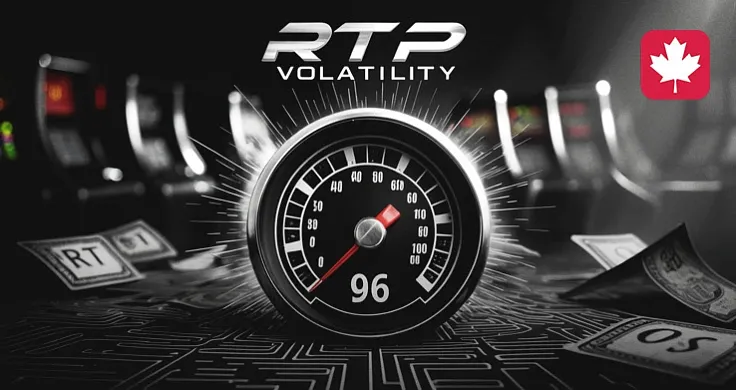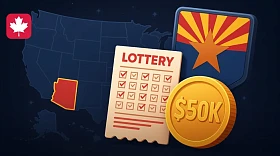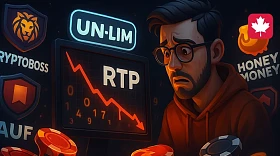
How often do wins occur in slots? The Real Truth about RTP, Volatility, and Your Chances
Slots. A favorite pastime for casino players, a magnet for anyone who loves the thrill of risk and the hope for a "big win." But here’s the question: how often do these machines actually pay out? The answer lies in such mysterious terms as RTP and volatility, which gambling gurus and casino brochures love to talk about. But let’s really break it down. I’ll tell you everything as it is, without any rose-colored glasses.
Content:
- RTP: What It Is and Why You Shouldn’t Rely on It
- Volatility: Here’s Where the Real Danger Lies
- How RNG Works and Why You’re Always Losing
- How Casinos Set Up Their Slots
- Myths and Legends about “Hot” and “Cold” Slots
- Slot Game Strategies: Is There Any Point?
- Casino Providers: Common Pools and Traps for Players Conclusion: Where and How to Play Wisely
1. RTP: What It Is and Why You Shouldn’t Rely on It

Let’s start with the most popular and, to be honest, the most overrated term in the world of slot machines — RTP or Return to Player. This is the percentage that a slot promises to return to players in the form of winnings over a long period. In most cases, this figure ranges from 90% to 97%, which sounds tempting, especially when you’re offered a slot with an RTP of 96%. "What, will I get back 96% of every hundred?" you might think. Well, keep your pockets wider.
How Casinos Use RTP Against You
You might think that if you play a slot with a high RTP, you’re bound to come out ahead. But here’s the important thing to understand: RTP is not a guarantee of getting your money back over a session or even a week of play. It’s a long-term measure calculated over hundreds of thousands of spins. Yes, theoretically, a slot with an RTP of 96% will return 96% of bets to all players collectively, but it doesn’t promise you anything specifically. You could play 100 spins and not see a penny.
Sometimes, once in a while, you might come in and hit an incredible win on your first spin. But we’re not here to discuss theories and dreams; we’re talking about real facts.
A Mind-Blowing Example
Imagine a casino where thousands of players spin the same slot with an RTP of 96%. Let’s say the total amount wagered is $1,000,000. From this amount, the slot theoretically will return $960,000, but who will get that money? Right, maybe one lucky player who hits the jackpot and takes 95% of that amount. And everyone else, including you, will likely be left with nothing. RTP doesn’t mean that every bet guarantees a win; it’s just a theory that works over enormous distances.
Why RTP Works in Favor of Casinos
Casinos love to advertise RTP as a measure of "fairness." This creates a false sense of security and control among players. But in reality, it’s just a number that can be adjusted, and most importantly, it doesn’t account for your specific experience over short gaming sessions.
The Real Takeaway: RTP is a tool designed to keep players in the game, creating the illusion of a fair system. Nothing more, nothing less.
Linked materials
2. Volatility: Here’s Where the Real Danger Lies

Now let’s talk about the second most crucial factor — slot volatility. While RTP tells us what percentage of money a slot theoretically returns, volatility shows how often and how much a slot machine pays out. The problem is that most players don’t even understand what they’re dealing with.
High or Low Volatility — What’s the Difference?
- High-volatility slots pay out rarely but in large amounts. Playing these machines, you might spin hundreds of times without seeing even a minimal win, but when you do win — it’s a solid amount.
- Low-volatility slots, on the other hand, pay out more frequently, but the amounts are much smaller. This might give you the feeling of a constant "top-up" of your balance, but in reality, you’re still losing, just more slowly.
A Real Game Example
Imagine a high-volatility slot where you bet $10. You might lose 50–100 spins in a row without winning a cent, but then win $1000 or more. On one hand, this gives a chance for a big win, but most players can’t handle the long wait and burn through their money before they get lucky.
Low-volatility slots work differently. You might win every 3–4 spins, but the amounts will be so small ($2–5) that your balance continues to decline, and in the end, you’ll also end up in the red.
Volatility and Player Psychology
Casinos know that different types of players behave differently. Some are willing to risk large sums for huge wins and choose high volatility. Others prefer "safety" and opt for slots with frequent but small payouts. But the key point here is that in both cases, you’re losing money if you play long enough. Volatility just creates the illusion of choice; in reality, it’s merely different strategies of the same.
Linked materials
3. How RNG Works and Why You’re Always Losing

If RTP and volatility are things you can learn about a slot before playing, RNG (Random Number Generator) is the real black magic that governs every one of your bets. And here lies the harshest truth about slots.
RNG is Your Main Enemy
RNG is a random number generator that determines the outcome of each spin. This algorithm operates at enormous speeds, generating thousands of numbers per second, and each of these numbers is tied to a specific outcome on the reels.
Here’s how it works:
- You hit the "Spin" button.
- RNG selects a number milliseconds before the reels stop.
- This number is matched with a winning or losing combination, and you either win or you don’t.
But here’s the catch: RNG doesn’t know or care how long it’s been since you last won, how much money you’ve lost, or how many spins you’ve played. It simply does its job — generating sequences of numbers that always, ultimately, favor the casino.
Why You Can’t Predict the Outcome
You might believe that a slot is "about to pay out" because it hasn’t made a big payout in a while. But that’s pure illusion. Each spin is completely random and in no way connected to previous ones. Just because you lost 50 times in a row doesn’t mean that on the 51st try, you’ll finally hit it big. RNG is set up so that in the long run, the money stays with the casino, not you.
4. How Casinos Set Up Their Slots
And here’s where it gets interesting. Slots are not the same in different casinos, even if you see the same game with identical visual effects and name. The fact is that casinos can adjust RTP and volatility of slots at their discretion based on their financial goals.
Example: The Slot Book of Dead
You might play the Book of Dead slot at one casino and get an RTP of 96%, while at another, it might be 91%. How is this possible? It’s because developers give casinos several configuration options for their games. The casino chooses the option that best fits their profit model. In some cases, casinos might even reduce the RTP below the advertised level for certain gaming sessions.
Linked materials
The Moral of the Story? An unscrupulous casino can lower the rate from 96% to 90%, 80%, or even 70%, which is why it’s essential to choose a casino carefully and only play in reliable and verified places.
5. Myths and Legends about “Hot” and “Cold” Slots

How many times have you heard phrases like "This slot is hot, it’s about to pay out!" or "This slot is cold, better switch to another"? This is one of the most common myths that is deeply rooted among players.
Why “Hot” and “Cold” Slots Are Nonsense
The truth is that each spin on a slot is completely random and is not dependent on how many times the slot has not paid out before. RNG has no memory. Just because a slot hasn’t paid out in a long time doesn’t mean it’s about to give a big win. This myth is actively supported by players because it creates a false sense of control.
How Casinos Use This Myth
Casinos understand player psychology very well. When you see that a slot hasn’t paid out for a long time, you feel the urge to keep playing because "you’re about to hit it big." This is precisely what casino operators hope for. You keep spinning the reels, spending your money, believing that you’ll eventually win, but it rarely happens.
6. Slot Game Strategies: Is There Any Point?
Despite everything we’ve discussed, players continue to look for strategies for beating slots. Here are the most popular approaches:
- Betting Systems: Some players believe in progressive betting systems, where they increase their bets after each loss, thinking this will help them get back what they lost. But in reality, this often leads to even greater losses.
- Chasing Losses: This common strategy involves trying to recoup losses by playing longer and betting higher. It rarely works out in the long run.
- Bankroll Management: This is actually the only sensible approach. Set a budget and stick to it, but remember that even the best bankroll management will not change the odds of winning.
The Main Takeaway: No strategy can alter the odds of the game. Slot machines are built to make money for the casino, and any strategy you employ won’t change that fact.
7. Casino Providers: Common Pools and Traps for Players

The world of online casinos isn’t just about flashy slots and shiny bonuses; it’s also filled with clever mechanisms that remain behind the scenes. One such hidden mechanism, which few people know about, is the system that connects casinos to slot machine providers. And if you think switching casinos will help you hit the jackpot, you’re deeply mistaken. Often, casinos are connected to the same providers in groups to cut costs and increase the number of wins and cash flow.
How Provider Pools Work and Why It Matters
When several casinos operate with the same provider through a "shared group" or intermediaries who connect them, they use a common pool of winnings. Imagine that all players playing on slots from the same provider (for example, Pragmatic Play, NetEnt, or Microgaming are effectively playing against the same balance. This means that if someone in one casino hits a big win on a particular slot, the chances for other players playing on slots from the same provider (in the same or another casino) drop sharply.
Why Does This Happen? Because slot providers operate on a model of redistributing bets among players. When a large jackpot is paid out, the overall balance with the provider decreases, and to refill it, the system must gather more bets from other players. It’s like a giant cash register: if a stack of cash is taken out, it takes time to replenish it.
Thinking of Switching Casinos? Forget It If You’re Playing with the Same Provider
How many times have you heard from friends or on forums advice like, "This slot isn’t paying? Change casinos!"? That’s a misconception based on a misunderstanding of how providers work. If you’re playing on slots from the same provider in different casinos within the same group (or those connected through a single intermediary), switching venues won’t give you any advantage.
When Does It Actually Make Sense to Switch?
If you feel that slots "aren’t paying" for a long time, or someone recently hit an incredible win of several hundred thousand or even millions — it makes sense to not change casinos, but to switch the provider itself. In other words, if you’re losing on slots from, say, Pragmatic Play, you should switch to slots from a different provider, like Push Gaming or Hacksaw. Each provider operates with its own separate pool of winnings, and switching providers can truly impact your chances of success. But don’t be deceived: the chances of winning remain low regardless; you’ll just be playing in a different "payout system."
Little-Known Casinos and Separate Pools: Why It’s Better to Stay Away
Now let’s explore another interesting (and unpleasant) detail. Some small casinos connect directly with providers, without the involvement of large groups or networks. This means they operate with small pools of players, and their pool of winnings is limited solely to those players who play on their platform.
What Does This Mean for You? In such casinos, where there are few players and limited connections with providers, the chances of hitting big wins are minimized. Why? Because the overall payout pool is too small, and the likelihood of a slot "hitting" a big win is extremely low.
Large casino networks, like Nine Casino, GetSlots, or Velobet, work with huge pools of players from all over the world. The more players connected to a pool, the higher the probability of regular payouts, as the pool is constantly filled with money from bets. In contrast, small casinos with narrow player pools cannot offer you the same chances. It’s like playing in a lottery with a total prize pool of only $1000 for 100 participants — the odds of winning something significant are extremely low.
Conclusion: Where and How to Play Wisely
So, how often do slot machines pay out? Much less often than you’d like. RTP, volatility, myths about hot and cold slots — these are merely tools that casinos use to keep you playing. The only real way to avoid losing is to approach it wisely.
If you’re playing on slots from the same provider in different casinos, it won’t change your chances of winning. The system is often connected to a common pool, and after a big win, it takes time for the balance to be restored.
Best Advice? Choose a reliable and trusted casino once and change slot providers. And stay away from small casinos that cannot ensure big wins due to their small pools. In such casinos, you’re likely to just be treading water, eternally waiting for the slot to "pay out" — and it won’t.





tickscollar All this bullshit was invented to squeeze out the last money. It used to be easier - bet on red, win or lose. And now some chickens are running, airplanes are flying... Circus.


xSuiZ The article is fire! Everything was laid out according to the facts. Drake is not a ludomaniac, he is a walking advertisement. And while the suckers believe in his "curse", Stake rakes in the money. Beautiful, you can't say anything. I've been riding a steak myself for a year now, I threw in crypto and generally don't give a about all the blocking.


Leoak Finally a good article on NC! I've been playing them since the very beginning, since the first Deadwood. Yes, their dispersion is crazy, you can lose a deposit in 100 spins. But when he pours ... It's worth it. In Mental x15k I caught, I still remember this spin. The whole point is in their x-mechanics, they really change the game, and not just for show.



tealblossom 2 minutes to respond? Yes, this is a dream! Otherwise, while you wait for these operators, you will already want to play. It's high time!















































It’s all just theory.
Just relax! It’s all a matter of time. Right now someone is winning, and tomorrow it could be you.
The casino will always shovel long-term losses right into your face.
Are you seriously relying on RTP? Hahaha, good luck!
Oh, these articles... Better tell me how not to lose millions in a casino on a small salary, instead of these terms and percentages.